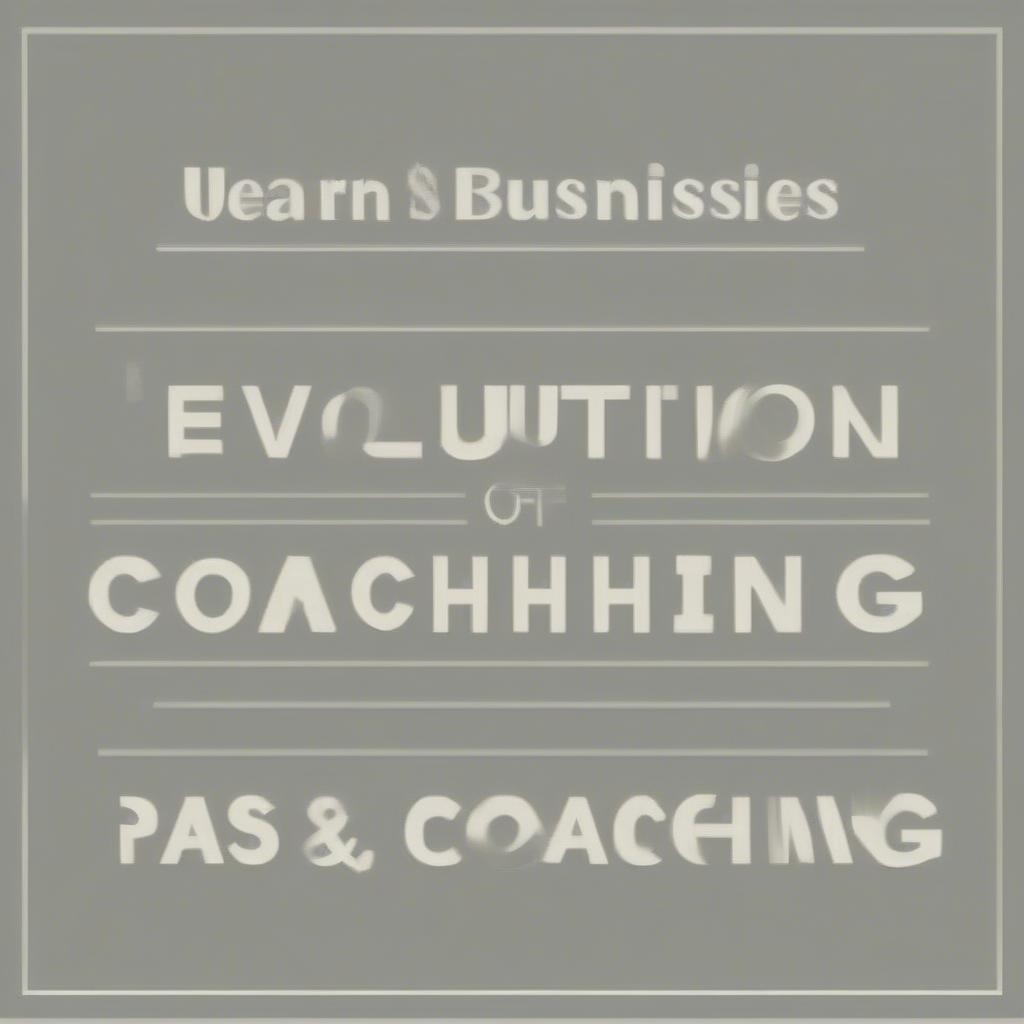
Confidentiality is the bedrock upon which strong, trusting, and effective coaching relationships are built. Without it, the open and vulnerable dialogues crucial for growth and transformation simply cannot occur. In this comprehensive guide, we will delve into the vital role that client confidentiality plays in the world of coaching, exploring its ‘what,’ ‘why,’ ‘when,’ and ‘how.’ We will also look at its profound benefits and offer practical strategies for upholding the highest professional standards in this crucial area.
What is Confidentiality in Coaching?
At its core, confidentiality in a coaching context means that any information shared by a client with their coach—whether it relates to personal aspirations, professional challenges, or anything in between—is held in absolute secrecy. It’s an ethical agreement that establishes a safe space for honest self-reflection and development. This protection extends to spoken words, written documents, notes taken during sessions, and even the very fact that a coaching relationship exists. It’s more than just a promise; it’s a fundamental principle that guides every interaction.
Key Aspects of Coaching Confidentiality
- Privacy of Information: The coach is obligated to keep all client information private.
- Discretion in Communication: No client details are to be shared with anyone – not family, friends, or colleagues.
- Secure Storage of Data: All notes and records must be stored securely, whether physical or digital.
- Limited Exceptions: There are a few specific exceptions where confidentiality might need to be breached (which we will discuss later).
Why is Client Confidentiality Essential?
The importance of client confidentiality in coaching cannot be overstated. It is the foundation upon which a successful coach-client partnership is constructed, enabling growth and change in several crucial ways.
Building Trust and Rapport
Trust is the cornerstone of any successful coaching relationship. When clients feel secure that their thoughts and vulnerabilities will be respected and kept private, they are more likely to be open, honest, and willing to delve into the deeper issues that may be holding them back. This level of openness allows the coach to understand the client’s unique challenges and provide the most tailored and effective guidance.
- Open Communication: Clients are more likely to express their true thoughts and feelings when they know these will remain within the safe space of the coaching relationship.
- Vulnerability and Honesty: A secure, confidential environment makes it easier for clients to be vulnerable, which is crucial for genuine self-reflection and growth.
- Strengthened Partnership: The trust built through confidentiality solidifies the bond between coach and client, fostering a strong, collaborative partnership.
Fostering Safety and Security
Coaching involves exploration, often into sensitive areas of life. For clients to feel safe enough to explore these areas, they need assurance that they are in a secure environment, free from judgment or the risk of their personal information being shared. Confidentiality ensures that this safety and security are established and maintained.
- Safe Exploration: Clients feel empowered to explore their fears, challenges, and aspirations without the anxiety of potential judgment or exposure.
- Reduced Fear: The guarantee of privacy reduces the fear of repercussions or damage to their reputation.
- Empowered Development: Feeling secure promotes the sense of psychological safety necessary to take risks, experiment with new approaches, and grow.
Maintaining Professional Integrity and Coaching Ethics
Adhering to confidentiality is a crucial aspect of coaching ethics. It demonstrates a coach’s commitment to professional standards and builds credibility within the coaching community. It sets the expectation that coaches act with integrity and responsibility, ensuring that they can be trusted with delicate and personal information.
- Ethical Obligation: Coaches have an ethical obligation to uphold client confidentiality, which is generally outlined in codes of ethics for coaching.
- Reputational Integrity: Following these standards safeguards the coach’s reputation and demonstrates professionalism.
- Industry Standards: Confidentiality is a widely recognized and expected standard in the coaching profession, and it is a cornerstone of the industry.
Enabling Effective Coaching Outcomes
Ultimately, confidentiality supports effective coaching. It allows clients to engage more fully in the process and, as a result, achieve better outcomes. The freedom to be candid and vulnerable contributes directly to the efficacy of the coaching intervention, facilitating significant changes and development.
- Better Results: Open communication leads to a deeper understanding and more effective coaching interventions.
- Personal Growth: When they feel safe, clients are more able to engage with the work, accelerating personal growth and development.
- Transformational Change: Confidentiality makes a substantial difference in the overall effectiveness of the coaching experience and its potential to be genuinely transformational.
When Does Confidentiality Apply?
Confidentiality isn’t just a general concept; it applies in very specific instances throughout the coaching relationship, ensuring the protection of client information across all touchpoints.
During Coaching Sessions
The primary application of confidentiality is, of course, during coaching sessions. Everything shared by the client, whether it’s about their career, personal life, or anything else, must remain private. This includes specific details, emotions, perspectives, and even casual remarks.
- Verbal Communications: All conversations that take place between the coach and client during coaching sessions are confidential.
- Non-Verbal Cues: Even the analysis of body language, facial expressions, and other nonverbal cues should be treated with confidentiality.
- Detailed Explanations: Whether it’s a specific strategy or a particularly sensitive personal story, every detail must be handled with the strictest discretion.
After Coaching Sessions
Confidentiality doesn’t end when a session concludes. It extends to the management and storage of any information collected during sessions. This includes notes taken, documents received, and even communication between sessions.
- Notes and Records: Session notes, regardless of format (digital or handwritten), must be kept private and stored in a secure manner.
- Emails and Texts: Any correspondence, such as emails or texts, must be treated with the same level of confidentiality.
- Data Storage: All digital and physical files need to be stored securely so they cannot be accessed by unauthorized personnel.
Outside the Coaching Relationship
Confidentiality extends beyond the direct interaction of the coaching sessions. It means coaches must not discuss client details with others, whether in a personal or professional context, or use specific information to promote themselves in a way that could identify the client.
- Social Situations: Avoid discussing client details with friends or family, even in casual settings.
- Professional Events: Refrain from sharing client information with colleagues or at any professional gatherings or conferences.
- Marketing and Promotion: Never use client stories in promotional material without explicit consent, and then do so only in a manner that removes identifying characteristics.
How to Maintain Client Confidentiality? Practical Strategies
Maintaining client confidentiality requires a proactive and intentional approach. Here are some actionable strategies that coaches can use to protect the privacy of their clients:
Clear Communication at the Start
Transparency is paramount. It’s essential to have a conversation about confidentiality with clients during the initial consultation or onboarding process. This should include explaining the boundaries of confidentiality, any exceptions, and what measures the coach takes to protect client information.
- Initial Consultation: Have a clear and open discussion on confidentiality and explain what it means within your coaching process.
- Written Agreement: Provide a written confidentiality agreement that both you and your client can sign, outlining the terms and boundaries.
- Addressing Concerns: Make time for any questions or concerns the client may have to build trust and understanding from the start.
Secure Data Management
Proper data management is essential in upholding client confidentiality. This includes both the physical and digital storage of information, along with the secure transmission of data.
- Physical Files: Keep all physical files (notes, documents) in a secure, lockable cabinet or drawer, inaccessible to unauthorized individuals.
- Digital Storage: Use password-protected devices and cloud storage systems that have robust security measures.
- Secure Communication: Employ secure channels for communicating with clients, such as encrypted emails and video conferencing platforms.
Regular Training and Refreshers
Coaches need to consistently stay informed about the best practices in data security and confidentiality. This should include both initial training and regular refresher sessions to ensure compliance with up-to-date standards.
- Continuous Learning: Invest in regular training and professional development to stay on top of the latest best practices for confidentiality.
- Professional Supervision: Work with a mentor or supervisor to get an objective view on handling client information.
- Industry Updates: Stay informed on any changes to legal requirements or ethical guidelines relating to client confidentiality.
Recognizing and Managing Exceptions
There are specific exceptions to confidentiality that coaches must be aware of and handle with the utmost care. These are typically cases where there are concerns about the client’s, or someone else’s, safety.
- Imminent Harm: If a client intends to harm themselves or others, the coach may need to take action, including contacting authorities or emergency services.
- Legal Requirements: There may be legal requirements (e.g. court subpoenas) that obligate a coach to disclose information.
- Disclosure Boundaries: Clearly define during initial consultation the circumstances under which a breach of confidentiality would occur.
Template for a Confidentiality Agreement
Here’s a simple template for a confidentiality agreement that can be used with clients:
Confidentiality Agreement
Between:
[Coach’s Name/Coaching Business Name] (hereafter referred to as the “Coach”)
And:
[Client’s Name] (hereafter referred to as the “Client”)
Date: [Date]
Purpose:
This agreement outlines the commitment to confidentiality within the coaching relationship between the Coach and Client.
Confidentiality Clause:
- The Coach agrees to keep all information shared by the Client, whether verbal or written, strictly confidential.
- This includes, but is not limited to, personal information, coaching goals, strategies, discussions during sessions, emails, and other communications.
- All records and notes pertaining to coaching will be stored securely.
- The Coach will not disclose any client information to third parties unless legally compelled to do so, or where there are reasonable grounds for believing that there is an imminent threat of harm to the Client or others.
- The Coach will not use client information for promotional purposes or as case studies without the explicit, informed consent of the Client.
Exceptions to Confidentiality:
- The Coach may be legally required to disclose information under a court order.
- The Coach will take action if they believe that the Client or someone else is at imminent risk of harm.
- In such a case, the Coach will, wherever possible, inform the Client of any breach of confidentiality.
Client Acknowledgment:
By signing below, the Client acknowledges that they have read and understood this confidentiality agreement and agree to abide by its terms.
Signatures:
Coach: ____ Date: ___
Client: ____ Date: ___
Benefits of Maintaining Client Confidentiality
The benefits of upholding client confidentiality extend far beyond simply meeting ethical obligations; they have a profound impact on the effectiveness of the coaching process and on the well-being of the client.
Deeper Client Trust
When clients know their information is protected, they trust their coach more deeply, and it establishes the bedrock for open communication and honest feedback.
- Stronger Relationships: It builds a strong foundation of trust for an effective coaching relationship.
- Increased Openness: Clients are more willing to share sensitive information knowing that they are in a safe and judgment-free space.
- Empowered Partnership: Clients feel safer to fully participate in the collaborative coaching relationship.
Enhanced Coaching Outcomes
Confidentiality facilitates a deeper, more effective coaching process, leading to improved outcomes for the client.
- More Effective Sessions: When clients feel safe to engage openly, coaching sessions become more effective and productive.
- Greater Progress: Clients make greater progress when they feel they can share openly and honestly.
- Achieving Goals: Confidentiality enables clients to make substantial changes toward their personal and professional goals.
Greater Personal Growth for Clients
With the assurance of privacy, clients feel empowered to explore their deepest selves and pursue meaningful personal growth.
- Reduced Inhibitions: Clients are more comfortable identifying their needs and can confront their fears and limiting beliefs.
- Self-Discovery: They can engage in deeper self-discovery and exploration without the worry of their information being shared.
- Greater Self-Awareness: The increased level of honesty results in a greater degree of personal awareness.
Coach Professional Development
Maintaining confidentiality is not just about client benefit; it also helps a coach to grow and build a stronger professional reputation.
- Ethical Practice: By consistently upholding confidentiality, coaches reinforce their ethical practices.
- Enhanced Credibility: Clients recognize and value this demonstration of integrity, enhancing the coach’s credibility and reputation.
- Strong Professionalism: It shows that the coach takes their professional responsibilities seriously, leading to client referrals and a thriving practice.
Learn Business and Your Success
At Learn Business, we understand the critical importance of ethics and professionalism, and particularly the fundamental role that confidentiality plays in the coaching industry. Our mission is to empower businesses with resources that help them develop thriving organizations and provide services with the highest ethical standards. We are dedicated to offering you the tools and insights you need to succeed.
How Learn Business Supports Businesses
We provide guidance, templates, and support tailored to your specific business needs, helping you build strong, sustainable practices from the ground up. Our resources include:
- Ethical Frameworks: We offer templates for establishing ethical frameworks within your coaching practice, emphasizing the importance of confidentiality and professional standards.
- Confidentiality Agreements: We offer detailed templates for confidentiality agreements that you can customize and use with your clients, ensuring clarity and understanding from the outset.
- Secure Data Handling Protocols: Access our protocols that guide you on securely handling client data, minimizing the risk of breaches.
- Training Resources: We provide access to regular training materials that ensure your team stays current with best practices in confidentiality and data protection.
- Business Strategies: Explore best practice strategies for promoting and maintaining your business practices, and client relations.
- Guidance and Consulting: Our experienced consultants can guide you with expert advice to establish an ethically sound and legally compliant business practice.
We believe that by providing you with the necessary tools, templates, and insights, we can help you build not only a successful business but one that is founded on integrity, trust, and the highest professional standards.
Conclusion
Confidentiality is not merely a procedural requirement within the coaching industry; it is the very heartbeat of the relationship between coach and client. It is the assurance that enables open dialogue, the freedom to explore vulnerabilities, and the foundation for genuine personal and professional transformation. By upholding client confidentiality, coaches not only adhere to coaching ethics but also cultivate the deep trust and safety that are indispensable for effective coaching outcomes. By adopting practical strategies for secure data management, regular training, and clear communication from the onset, and by understanding the importance of professional standards they can protect both their clients and their own professional standing.
Remember, in coaching, confidentiality isn’t just a good practice; it is a fundamental requirement of the relationship and the cornerstone of a coach’s credibility. By prioritizing and safeguarding client privacy at every step, coaches create an environment where transformative growth can flourish and lasting success can be achieved.



Leave a Reply